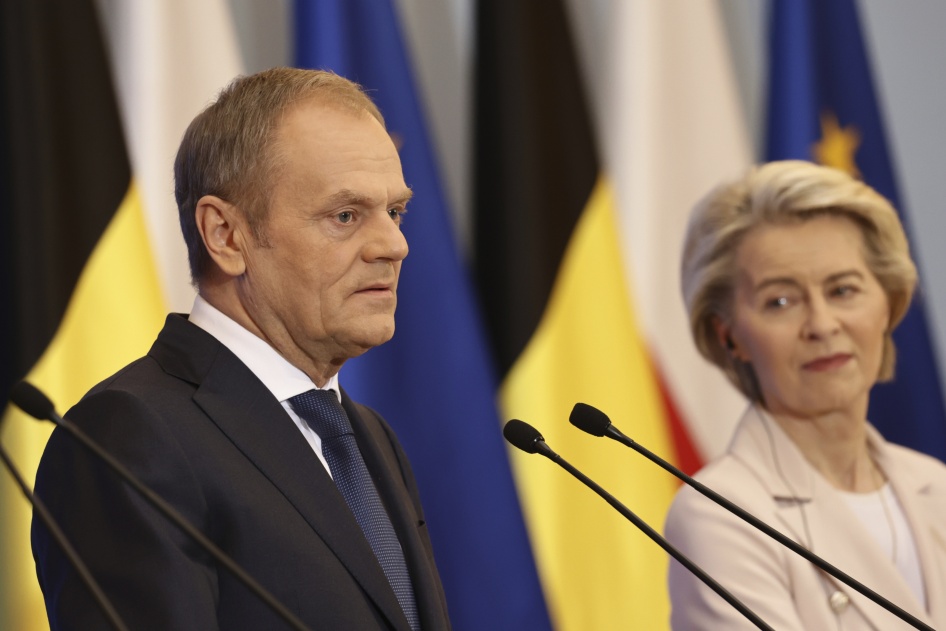The European Commission decided to close the article 7 procedure against Poland on Wednesday, despite Poland’s newly elected government not having implemented all needed reforms. Article 7 is the EU’s primary treaty-based mechanism to hold accountable EU member states that undermine the bloc’s values, including by violating the rule of law.
Article 7 was invoked against Poland in 2017 in response to then-governing Law and Justice party’s (Prawo i Sprawiedliwość, PiS) political take-over of the country’s justice system and its challenge to the primacy of EU over national law.
The rush to end the procedure is primarily based on “commitments” by Poland’s new coalition government, which came to power last December under former Polish Prime Minister and European Council President Donald Tusk. While the government has put in place an action plan, few concrete measures have actually been implemented. Also, there is concern over how it has approached the dismantling of the previous government’s control of the judiciary.
Poland still needs to make key reforms to fully meet the EU’s rule of law requirements, including transparent and independent determinations that respect due process when removing judges appointed under the former government. An issue that has been noted by the Venice Commission, the Council of Europe’s constitutional law body, which has raised questions with regard to Polish legislation dealing with judges’ removal.
Without adequate safeguards, dismissing judges or media professionals – such as December’s sweeping dismissals at state media – risk violating the very principles of democracy and rule of law that the new government pledged to protect.
The Commission’s hurried decision could create a perception of favouritism and risks politicising the article 7 procedure.
It could also be used by Hungary’s Prime Minister Viktor Orbán to discredit the article 7 mechanism and even end scrutiny of Hungary under the procedure which began in 2018.
Even as it prepares to take on the rotating presidency of the EU Council in July, Orbán’s government continues to show blatant disregard for EU norms, the rule of law, and human rights. A recent law in Hungary de facto gives the government broad powers to target civil society and independent media. Hungary’s worsening situation with democracy and rights should have given the Commission pause before it sets potentially damaging precedents.
In this phase of Poland’s political transition, it is critical to continue monitoring the rule of law, fundamental rights, and democracy there, using all tools at the EU’s disposal.











